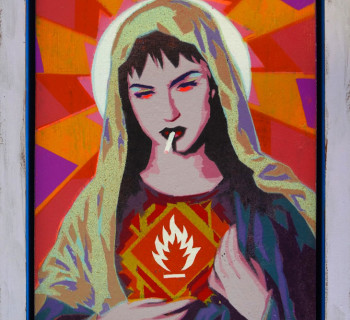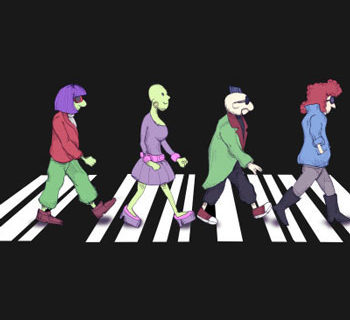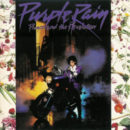Father John Misty, Free Me From Babylon
Father John Misty makes me want to get down on my knees and pray. His soulful voice and passionate statements will liberate me from the prison of social constructs, and I will achieve piety by rejecting suburban sprawl.
Misty’s unique brand of existentialism and honesty about man’s brutality makes for a dynamic musical experience. His songs are a crisp blend of Americana, solo guitar, and inventive psychedelic, electronic shapes. Raised in an oppressive evangelical Christian family, Misty has transformed that church’s performative tradition into a personal sonic confessional.
Father John Misty, a.k.a. J. Tillman, invites you into his world on his website, which features a 24-hour “Infotainment Cycle,” a non-stop loop of live performances by the artist. Misty seems to simultaneously relish and despise the culture of celebrity, and makes no qualms about showing his disgust for the shallow human behavior to which he himself succumbs.
His soulful voice and passionate statements will liberate me from the prison of social constructs, and I will achieve piety by rejecting suburban sprawl.
But this persona grew out of Tillman’s rejection of his religious upbringing. His early life in a small suburb of Washington, D.C. was steeped in rigorous Bible education and evangelical Christian dogma. Like many kids, he learned how to play musical instruments, including the drums, guitar, and piano, but secular music was forbidden. Secretly listening to a transistor radio at night, Tillman’s early exposure to secular music was a clandestine experience, and he has openly described his upbringing as culturally oppressive. It wasn’t until he was about 17 that he was able to convince his parents that Bob Dylan could be classified as a Christian artist, and they allowed him to listen to other music with a “spiritual” bent. After a brief tenure at a Christian college in upstate New York, Tillman moved to Seattle when he was 21, and the development of his musical identity began in earnest.
Tillman played with several Seattle area bands before landing the role of drummer for Fleet Foxes. He toured with Fleet Foxes on their Helplessness Blues promotion until early 2012, leaving under the pretext that he hadn’t contributed to the band’s success but was merely a participant. Tillman introduced his Misty persona to the world in 2012 with the release of his solo album, Fear Fun, proving to the world and to himself that he could create his own reality.
Prior to his time with Fleet Foxes, Misty released eight micro-albums dating all the way back to 2003 under the Tillman moniker. These garnered him some followers, but were ultimately a personal journey out of his fucked-up childhood. Tillman’s rebirth as Misty, fueled by massive doses of psychedelics and tour fatigue, opened the possibility that he can use his pain to enrich his work, and thereby make it mean something.
His debut album, Fear Fun was met with critical acclaim and popular success, and was accompanied by a dynamic video for the album single “Hollywood Forever Cemetery Sings.” Fear Fun was followed in 2015 with his release of I Love You, Honey Bear. Seattle’s renowned Sub Pop Records released both albums, and announced I Love You, Honey Bear with a press release in which Misty explains the album’s concept:
“My ambition, aside from making an indulgent, soulful, and epic sound, worthy of the subject matter, was to address the sensuality of fear, the terrifying force of love, the unutterable pleasures of true intimacy, and the destruction of emotional and intellectual prisons in my own voice. Blammo.”
No big deal.
I Love You, Honey Bear toured with a 7-piece band, and Misty describes the album artwork as a “dioramic, meta-musical funtime gatefold jacket.” You can see the religious symbolism through Misty’s dramatic lyrics about escape. He prophesies an exodus of the things that hold people back, through the power of personal narrative. Misty is not easily defined, and any official label would be an affront to his music. But with his invitation to confess the who-you-should-never-be, prepare to close your eyes, pass the peace pipe, and bow down to the great mystery of human experience.













